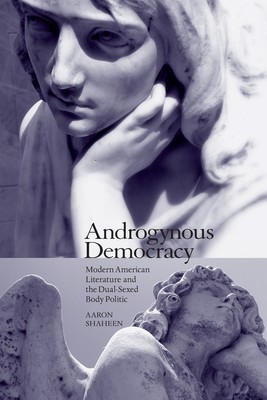
- We will send in 10–14 business days.
- Author: Aaron Shaheen
- Publisher: Univ Tennessee Press
- ISBN-10: 162190427X
- ISBN-13: 9781621904274
- Format: 15.2 x 22.9 x 1.1 cm, softcover
- Language: English
- SAVE -10% with code: EXTRA
Reviews
Description
Androgynous Democracy examines how the notions of gender equality propounded by transcendentalists and other nineteenth-century writers were further developed and complicated by the rise of literary modernism. Aaron Shaheen specifically investigates the ways in which intellectual discussions of androgyny, once detached from earlier gonadal-based models, were used by various American authors to formulate their own paradigms of democratic national cohesion. Indeed, Henry James, Frank Norris, Charlotte Perkins Gilman, John Crowe Ransom, Grace Lumpkin, W. E. B. Du Bois, and Marita Bonner all expressed a deep fascination with androgyny--an interest that bore directly on their thoughts about some of the most prominent issues America confronted as it moved into the first decades of the twentieth century.
Shaheen not only considers the work of each of these seven writers individually, but he also reveals the interconnectedness of their ideas. He shows that Henry James used the concept of androgyny to make sense of the discord between the North and the South in the years immediately following the Civil War, while Norris and Gilman used it to formulate a new model of citizenship in the wake of America's industrial ascendancy. The author next explores the uses Ransom and Lumpkin made of androgyny in assessing the threat of radicalism once the Great Depression had weakened the country's faith in both capitalism and religious fundamentalism. Finally, he looks at how androgyny was instrumental in the discussions of racial uplift and urban migration generated by Du Bois and Bonner. Thoroughly documented, this engrossing volume will be a valuable resource in the fields of American literary criticism, feminism and gender theory, queer theory, and politics and nationalism. Aaron Shaheen is UC Foundation Assistant Professor of English at the University of Tennessee at Chattanooga. He has published articles in the Southern Literary Journal, American Literary Realism, and the Henry James Review.EXTRA 10 % discount with code: EXTRA
The promotion ends in 20d.04:56:08
The discount code is valid when purchasing from 10 €. Discounts do not stack.
- Author: Aaron Shaheen
- Publisher: Univ Tennessee Press
- ISBN-10: 162190427X
- ISBN-13: 9781621904274
- Format: 15.2 x 22.9 x 1.1 cm, softcover
- Language: English English
Androgynous Democracy examines how the notions of gender equality propounded by transcendentalists and other nineteenth-century writers were further developed and complicated by the rise of literary modernism. Aaron Shaheen specifically investigates the ways in which intellectual discussions of androgyny, once detached from earlier gonadal-based models, were used by various American authors to formulate their own paradigms of democratic national cohesion. Indeed, Henry James, Frank Norris, Charlotte Perkins Gilman, John Crowe Ransom, Grace Lumpkin, W. E. B. Du Bois, and Marita Bonner all expressed a deep fascination with androgyny--an interest that bore directly on their thoughts about some of the most prominent issues America confronted as it moved into the first decades of the twentieth century.
Shaheen not only considers the work of each of these seven writers individually, but he also reveals the interconnectedness of their ideas. He shows that Henry James used the concept of androgyny to make sense of the discord between the North and the South in the years immediately following the Civil War, while Norris and Gilman used it to formulate a new model of citizenship in the wake of America's industrial ascendancy. The author next explores the uses Ransom and Lumpkin made of androgyny in assessing the threat of radicalism once the Great Depression had weakened the country's faith in both capitalism and religious fundamentalism. Finally, he looks at how androgyny was instrumental in the discussions of racial uplift and urban migration generated by Du Bois and Bonner. Thoroughly documented, this engrossing volume will be a valuable resource in the fields of American literary criticism, feminism and gender theory, queer theory, and politics and nationalism. Aaron Shaheen is UC Foundation Assistant Professor of English at the University of Tennessee at Chattanooga. He has published articles in the Southern Literary Journal, American Literary Realism, and the Henry James Review.

Reviews